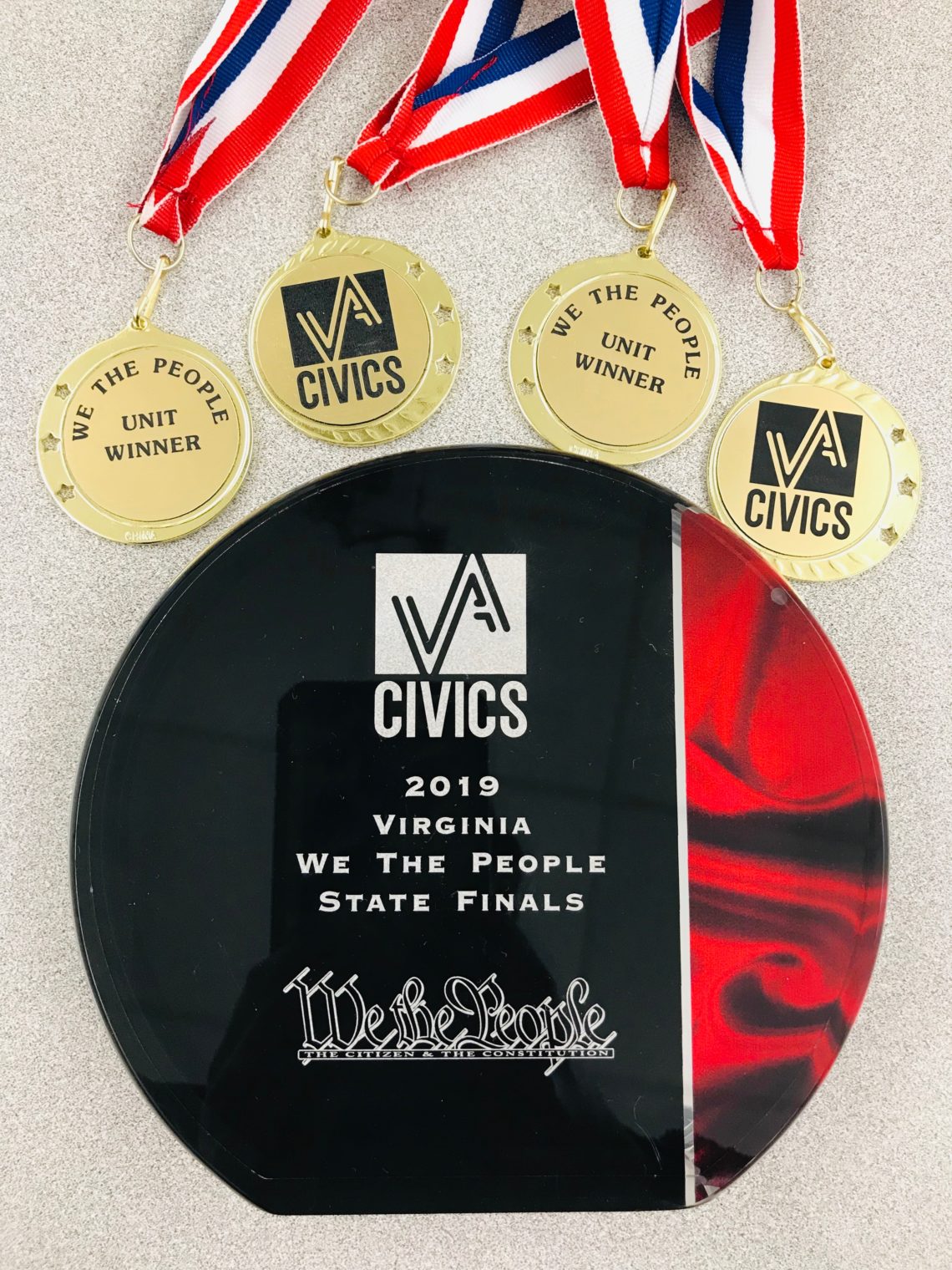Group Finishes in Top Five at State Competition
“It was one of our strongest finishes in a few years,” said Government teacher Ra Alim Shabazz, who coaches the T.C. seniors on the team. “It is an intense competition and I am immensely proud of what the students did. I believe that they all walked away from this feeling different.”
The We the People team finished in the top five teams at the state finals competition on February 1, shortly after winning the regional championship in December of last year. They came in fifth place and won an honorable mention. They scored the highest out of all of the teams in Unit 6, even surpassing the winning team, a governor’s school.
We the People, an honors-level congressional mock hearing competition, follows six units of study that correspond to the competition categories. Students spend the class preparing for competitions, studying case law and dividing up in groups to take on the challenging questions under each theme to form an argument. The group of three students edits down their testimony to four minutes and presents it together. At the competition, students are questioned aggressively on their testimonies by former state legislatures, lawyers, lecturers, and other historians.
In every competition, the T.C. students go up against competitive governors schools and private schools that spend much more time practicing and preparing than they do. “They take this like football. They practice six days a week,” Shabazz explained. “The only time we practice is in class.”
Shabazz has designed a program formula to make class practices more efficient. He helps students tailor their testimony to issues they are passionate about, which gives them an edge in answering tough questions from judges.
We the People changes the way that students are traditionally tested on their knowledge. Instead of choosing between four or five different options, the competition measures their ability to construct and defend their arguments.
“[The Judges] are experts,” explained Shabazz. “So when you have these type of people firing questions at you about all this content… they are coming for you. If you mention something, it is sort of like Miranda ruling where anything can and will be used against you…. You have to defend it. That is the true test of what people know.”
For example, students are confronted with questions on the impact of the Brown vs. Board decision and the role it played in desegregating schools. The team tackled economic segregation head-on, bringing up how economic segregation still separates schools. They are also not afraid to discuss cases of modern civil disobedience, Black Lives Matter and injustices that they have experienced in their testimonies.
“We are bringing up things no one else is talking about,” said Shabazz.
Though the team will not be advancing to the national competition, all of the competitors have won something of higher value. They acquired the respect of legal professionals, challenged stereotypes and transformed the reputation of T.C. Most importantly, they were pushed out of their comfort zone to speak on issues that they are passionate about.
“We are competitive year after year with minorities who are not supposed to be competitive in intellectual sports,” said Shabazz.



